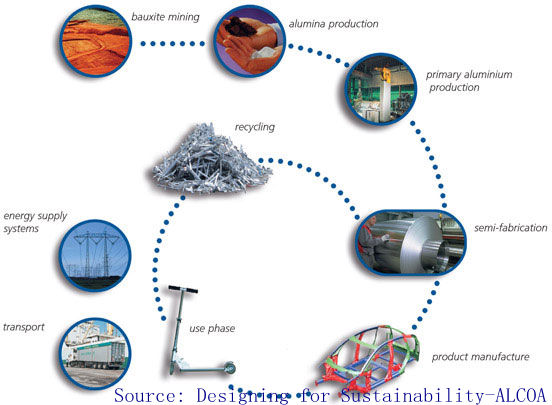
- Aluminum is a metallic material, whose properties and characteristics are not affected even when it has been used in a product. Aluminum can thus be recycled and re-used as often as necessary without any loss in quality. It is considered that about 75% of the almost one billion tones of aluminum ever produced is still in productive use, some having been through countless loops of its lifecycle. The high value of the metal is maintained and offers a sufficient economic incentive for the metal to actually be collected, treated, melted and used again in a similar or comparable way at the end of the product’s service life.
- Aluminum that arises during processing stages or at the end of a product’s service life becomes a secondary raw material which has markets world-wide. Aluminum in the shape of bales of scrap, turnings, skimmings etc. is collected, treated and melted.
- Subsequent to a treatment of the melt, the aluminum is cast into ingots or supplied to foundries in liquid form. The alloys obtained are used for the production of cast, extruded and rolled products. The steel industry and the aluminothermic process require special products, like deoxidation aluminum, aluminum granules or powder.
- The metal trade, processors, refiners and remelters are all involved in the recycling of aluminum.
-
About us
Contact us
Make a suggestion
- Metalpedia is a non-profit website, aiming to broaden metal knowledge and provide extensive reference database to users. It provides users reliable information and knowledge to the greatest extent. If there is any copyright violation, please notify us through our contact details to delete such infringement content promptly.

